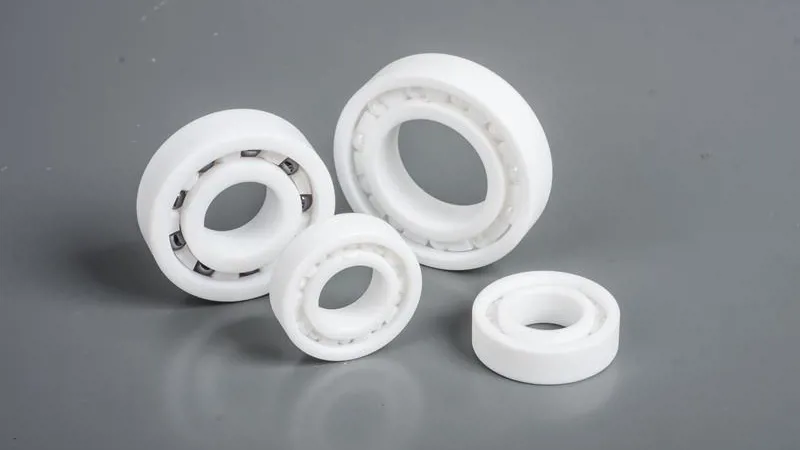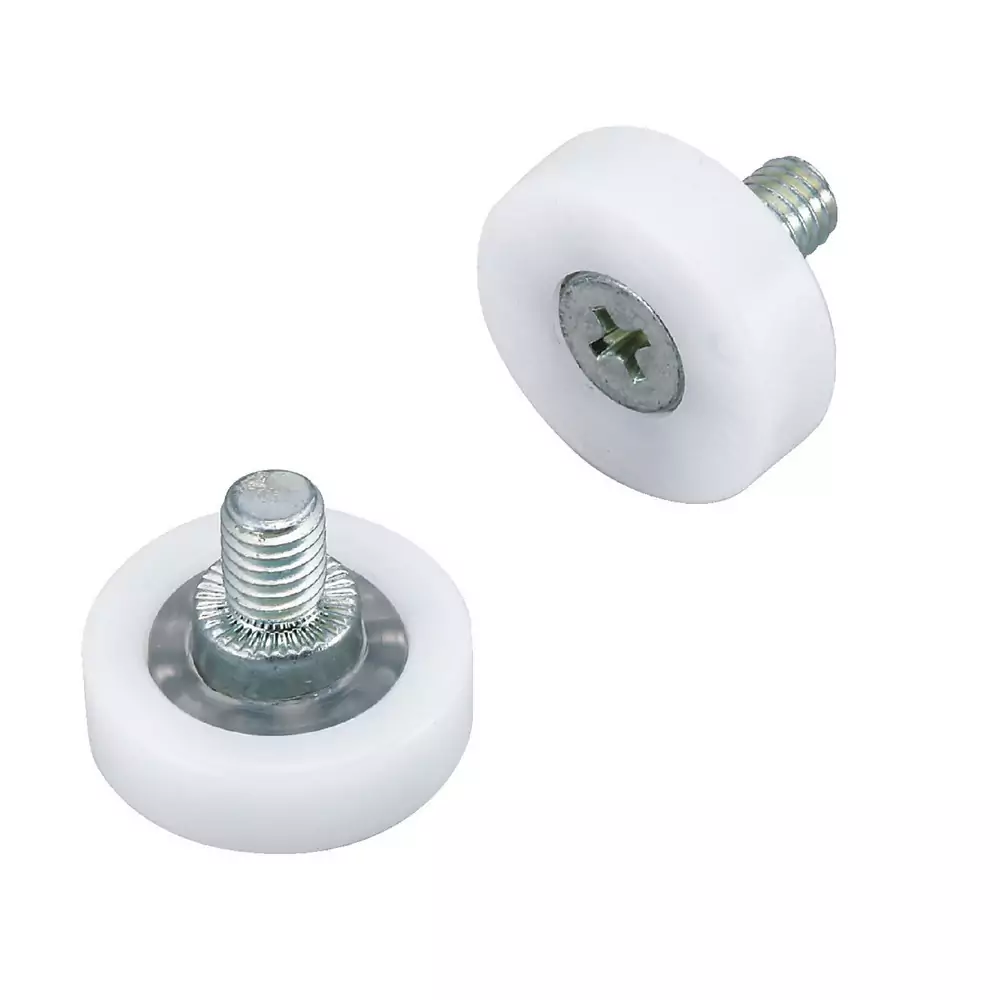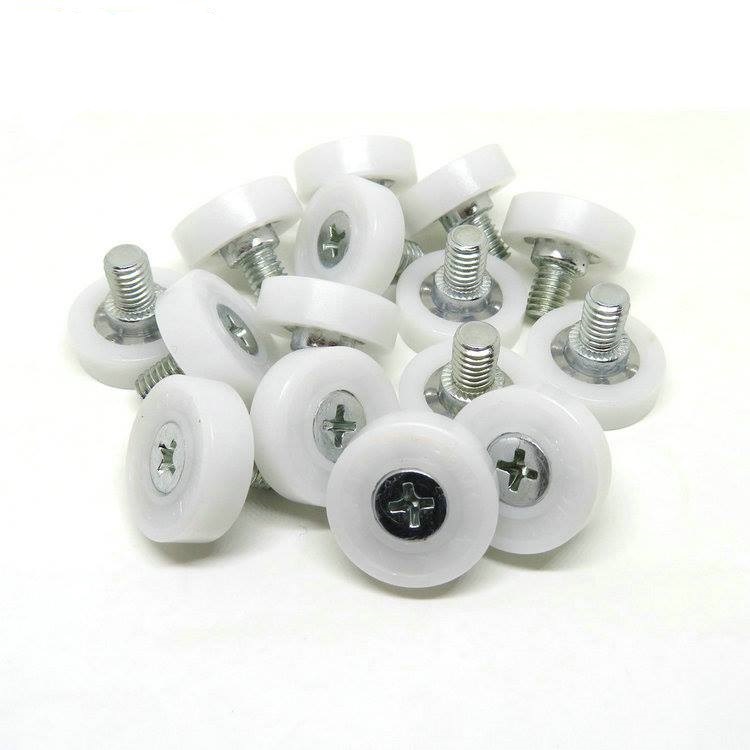Product Description
Product Description
|
Type |
Linear Xihu (West Lake) Dis.s |
|||
|
Material |
Bearing steel GCR15 |
|||
|
Brand |
SER |
|||
|
Rigidity |
HRC 58-62 |
|||
|
Rated load 1 |
503-4524 |
|||
|
Rated load 2 |
815-7909 |
|||
|
Mounting hole |
M4-M14 |
|||
|
Xihu (West Lake) Dis. Length |
100-4000mm |
|||
|
Quality certificate |
ISO9001-2008 |
|||
|
Width or Diameter |
15-45mm |
|||
|
Function |
Anti-friction, Dustproof, Antirust |
|||
|
Performance |
low friction, low noise, high speed and high precision |
|||
|
Application |
precision part, cnc machining parts, auto parts, industrial parts, etc |
|||
Detailed Photos
Product Parameters
Packaging & Shipping
Company Profile
ZheJiang Sair Mechanical Xihu (West Lake) Dis. Co., Ltd
ZheJiang Sair Mechanical Xihu (West Lake) Dis. Co., Ltd is 1 of the biggest linear CZPT and ball screw manufacture in China,with strong technical strength, advanced production equipments, high-quality staff team and perfect after-sales services, our company is the precision machinery manufacturer with research and development, manufacturing, sales, service all in one.
After Sales Service
Customer Service
The products are mature with high quality. They are not only sold well all over the country, but also exported to Europe, Americas, Southeast Asia, Africa and more than 70 countries. They have excellent marketing performance, highly appreciated and trusted by the vast number of customers.
If you have any needs, Please contact with me directly!
FAQ
1. Q: How about the quality of your product?
A: 100% inspection during production. Our products are certified to ISO9001-2008 international quality standards.
2. Q: What’s the delivery time?
A: For custom order, within 2000 meters, Production time is 15days after confirmed every details.
3. Q: What’s your packing?
A: Our Normal packing is bulking in PE bag, and then into plywood Cartons. We also can pack products according to your requirement.
4. Q: What about the warranty?
A: We are very confident in our products,and we pack them very well to make sure the goods in well protection.
5. Q: Could you send me your catalogue and price list?
A: As we have more than hundreds of products,it is really too hard to send all of catalogue and price list for you. Please inform us the style you interested, we can offer the pricelist for your reference.
6. Q:There are a lot of companies which export bearings, why do you choose us?
A: As we are a genuine linear CZPT supplier since 2011.and we are really factory, you need not pay the profit for middlemen. so we can offer you the lowest and competitive price .
/* January 22, 2571 19:08:37 */!function(){function s(e,r){var a,o={};try{e&&e.split(“,”).forEach(function(e,t){e&&(a=e.match(/(.*?):(.*)$/))&&1
| Application: | CNC Machine |
|---|---|
| Material: | Steel |
| Structure: | Rail & Slider |
| Samples: |
US$ 10/Piece
1 Piece(Min.Order) | Order Sample |
|---|
| Customization: |
Available
| Customized Request |
|---|
.shipping-cost-tm .tm-status-off{background: none;padding:0;color: #1470cc}
|
Shipping Cost:
Estimated freight per unit. |
about shipping cost and estimated delivery time. |
|---|
| Payment Method: |
|
|---|---|
|
Initial Payment Full Payment |
| Currency: | US$ |
|---|
| Return&refunds: | You can apply for a refund up to 30 days after receipt of the products. |
|---|

Can you describe the various types of seals and shields used with plastic bearings for contamination prevention?
Yes, I can describe the various types of seals and shields used with plastic bearings for contamination prevention. Here’s a detailed explanation:
- 1. Contact Seals:
Contact seals, also known as lip seals or rubber seals, are common types of seals used with plastic bearings. These seals are made of elastomers such as nitrile rubber (NBR) or fluorocarbon rubber (FKM) and provide a physical barrier between the bearing and the external environment. Contact seals have a lip that makes direct contact with the inner or outer ring of the bearing, effectively preventing the entry of contaminants such as dust, dirt, or moisture. They offer good sealing performance and are suitable for applications with moderate operating speeds and temperatures.
- 2. Non-Contact Seals:
Non-contact seals, also known as labyrinth seals or gap seals, are designed to minimize friction and allow for higher operating speeds. These seals consist of multiple labyrinth-like grooves or channels that create a tortuous path for contaminants, preventing their entry into the bearing. Non-contact seals are typically made of materials like plastic or metal. They offer reduced heat generation, lower torque, and increased efficiency compared to contact seals. However, they may not provide as high a level of contamination protection in extremely dusty or wet environments.
- 3. Shields:
Shields, also referred to as metal shields or metal covers, are used with plastic bearings to provide a barrier against contaminants. Shields are generally made of metal, such as stainless steel or sheet steel, and are attached to the outer ring of the bearing. They have a gap or clearance between the shield and the inner ring, allowing for smooth rotation while preventing larger particles or debris from entering the bearing. Shields offer good protection against coarse contaminants and are suitable for applications with moderate speeds and temperatures.
- 4. Combination Seals and Shields:
In certain applications, a combination of seals and shields may be used to provide enhanced contamination prevention. These combination seals and shields offer a dual-layered protection system. For example, a plastic bearing may have a contact seal on one side to provide effective sealing against contaminants, while a shield is used on the other side to provide additional protection and allow for visual inspection or lubrication access. This combination approach offers flexibility and adaptability to different operating conditions and contamination risks.
- 5. Customized Sealing Solutions:
In addition to standard seals and shields, customized sealing solutions can be developed based on specific application requirements. Custom seals or shields can be designed to address unique challenges such as extreme temperatures, aggressive chemicals, or high-pressure environments. These specialized sealing solutions ensure optimal contamination prevention and performance in demanding applications.
In summary, plastic bearings can be equipped with various types of seals and shields for contamination prevention. Contact seals, non-contact seals, shields, and combination seals and shields are commonly used to provide a barrier against contaminants such as dust, dirt, or moisture. The selection of the appropriate sealing solution depends on factors such as operating conditions, contamination risks, speed requirements, and specific application needs. By effectively preventing contamination, these seals and shields contribute to the reliable and long-lasting performance of plastic bearings in diverse industrial and mechanical applications.

How do plastic bearings perform in wet or corrosive environments?
Plastic bearings are known for their excellent performance in wet or corrosive environments. Here’s a detailed explanation of how plastic bearings perform in such conditions:
- 1. Corrosion Resistance:
Plastic bearings exhibit high corrosion resistance, making them well-suited for wet or corrosive environments. Unlike metal bearings that can rust or corrode when exposed to moisture or corrosive substances, plastic bearings are unaffected by these conditions. They can resist the effects of water, chemicals, acids, alkalis, and other corrosive agents, ensuring long-term functionality and preventing premature failure.
- 2. Moisture Resistance:
Plastic bearings have inherent moisture resistance properties. They are not affected by water absorption, which can cause dimensional changes and degradation in some materials. Plastic bearings maintain their shape, dimensional stability, and mechanical properties even when exposed to high levels of moisture or humidity. This makes them suitable for applications where water or moisture is present, such as marine environments, wastewater treatment plants, or outdoor equipment.
- 3. Chemical Resistance:
Plastic bearings offer excellent resistance to a wide range of chemicals, including acids, bases, solvents, and oils. They are inherently non-reactive, which means they do not undergo chemical reactions or degradation when exposed to various chemical substances. This chemical resistance allows plastic bearings to perform reliably in environments where exposure to corrosive chemicals is common, such as chemical processing plants or laboratories.
- 4. Self-Lubrication:
Many plastic bearings are self-lubricating, meaning they have built-in lubrication properties that eliminate the need for external lubrication. Self-lubricating plastic bearings are often impregnated with solid lubricants, such as PTFE (polytetrafluoroethylene) or graphite, which provide a low-friction interface between the bearing surfaces. This self-lubrication feature allows plastic bearings to maintain their performance even in wet or corrosive environments, where traditional lubricants may wash away or be compromised.
- 5. Reduced Contamination:
Plastic bearings contribute to reduced contamination in wet or corrosive environments. Unlike metal bearings that can generate wear particles or rust, plastic bearings do not shed particles or corrode, minimizing the risk of contamination. This is particularly important in applications where cleanliness is crucial, such as food processing, pharmaceutical manufacturing, or cleanroom environments.
- 6. Lightweight:
Plastic bearings are lightweight compared to metal bearings. This makes them advantageous in wet or corrosive environments, as they can reduce the overall weight of the equipment or machinery. Additionally, the lightweight nature of plastic bearings reduces the load on supporting structures and allows for more efficient operation in these environments.
In summary, plastic bearings perform exceptionally well in wet or corrosive environments. Their corrosion resistance, moisture resistance, chemical resistance, self-lubrication properties, reduced contamination risk, and lightweight nature make them reliable and durable choices for applications where exposure to water, chemicals, or corrosive substances is prevalent.

How do plastic bearings contribute to reduced friction and noise in machinery?
Plastic bearings play a significant role in reducing friction and noise in machinery. Here’s a detailed explanation of how plastic bearings contribute to these benefits:
- 1. Low Friction Coefficient:
Plastic bearings are designed to have low friction coefficients, which means they generate less resistance as the bearing surfaces slide or roll against each other. The low friction coefficient of plastic materials, such as PTFE (polytetrafluoroethylene) or nylon, helps minimize the amount of energy required to rotate or move the bearing. This reduction in friction results in several advantages, including lower power consumption, improved efficiency, and reduced wear on the bearing surfaces.
- 2. Self-Lubricating Properties:
Many plastic bearings have self-lubricating properties, which means they can operate effectively without the need for external lubrication. The plastic materials used in these bearings contain additives or solid lubricants that provide a thin film of lubrication between the bearing surfaces. This self-lubrication minimizes friction and wear, enhances the bearing’s performance, and reduces the need for regular lubrication maintenance. As a result, plastic bearings contribute to smoother operation and lower friction-related noise in machinery.
- 3. Damping Characteristics:
Plastic materials used in bearings often possess inherent damping characteristics. Damping refers to the ability of a material to absorb or dissipate vibrations and energy. Plastic bearings can effectively absorb vibrations generated during machinery operation, which helps reduce the transmission of vibrations to other parts of the system. This damping effect contributes to a quieter operation by minimizing the noise generated by machinery vibrations.
- 4. Reduced Metal-to-Metal Contact:
Plastic bearings create a barrier between metal surfaces, reducing direct metal-to-metal contact. This separation prevents or minimizes the occurrence of metal-to-metal friction, which can lead to increased noise levels. The plastic material acts as a cushioning layer, reducing the impact and noise generated by metal components rubbing against each other. By reducing metal-to-metal contact, plastic bearings contribute to quieter machinery operation.
- 5. Vibration Isolation:
Plastic bearings can help isolate and dampen vibrations within machinery. The elastic and damping properties of plastic materials allow them to absorb and dissipate vibrations, preventing them from propagating throughout the system. By isolating vibrations, plastic bearings help reduce the transmission of vibrations to other parts of the machinery, minimizing noise generation. This vibration isolation contributes to a quieter overall operation.
Overall, plastic bearings offer several advantages that contribute to reduced friction and noise in machinery. Their low friction coefficients, self-lubricating properties, damping characteristics, reduced metal-to-metal contact, and vibration isolation capabilities all work together to minimize energy losses, wear, and noise generation. However, it’s important to consider specific application requirements and consult manufacturers’ guidelines to ensure the appropriate selection and use of plastic bearings for optimal performance in machinery.


editor by CX 2024-05-13